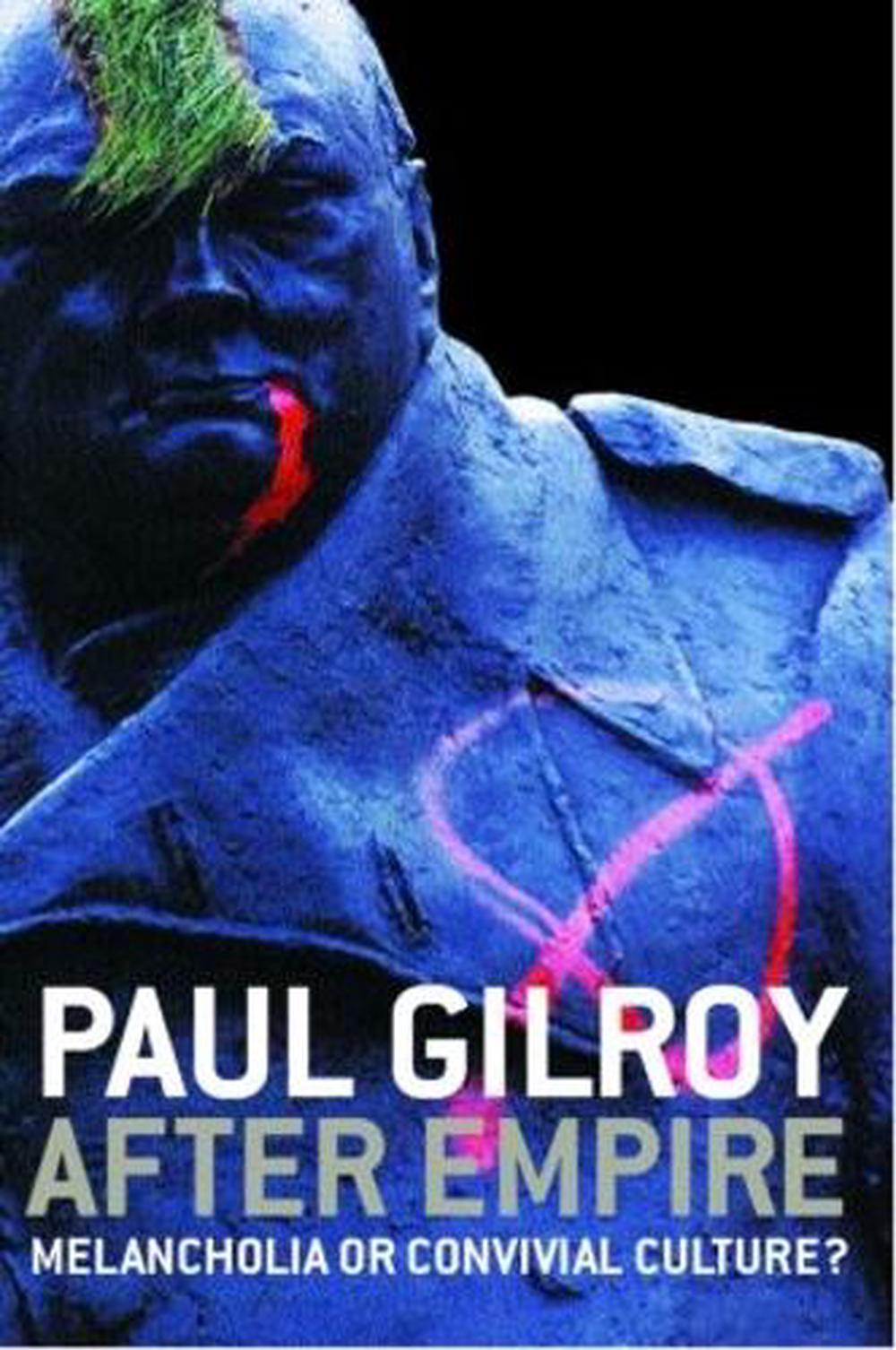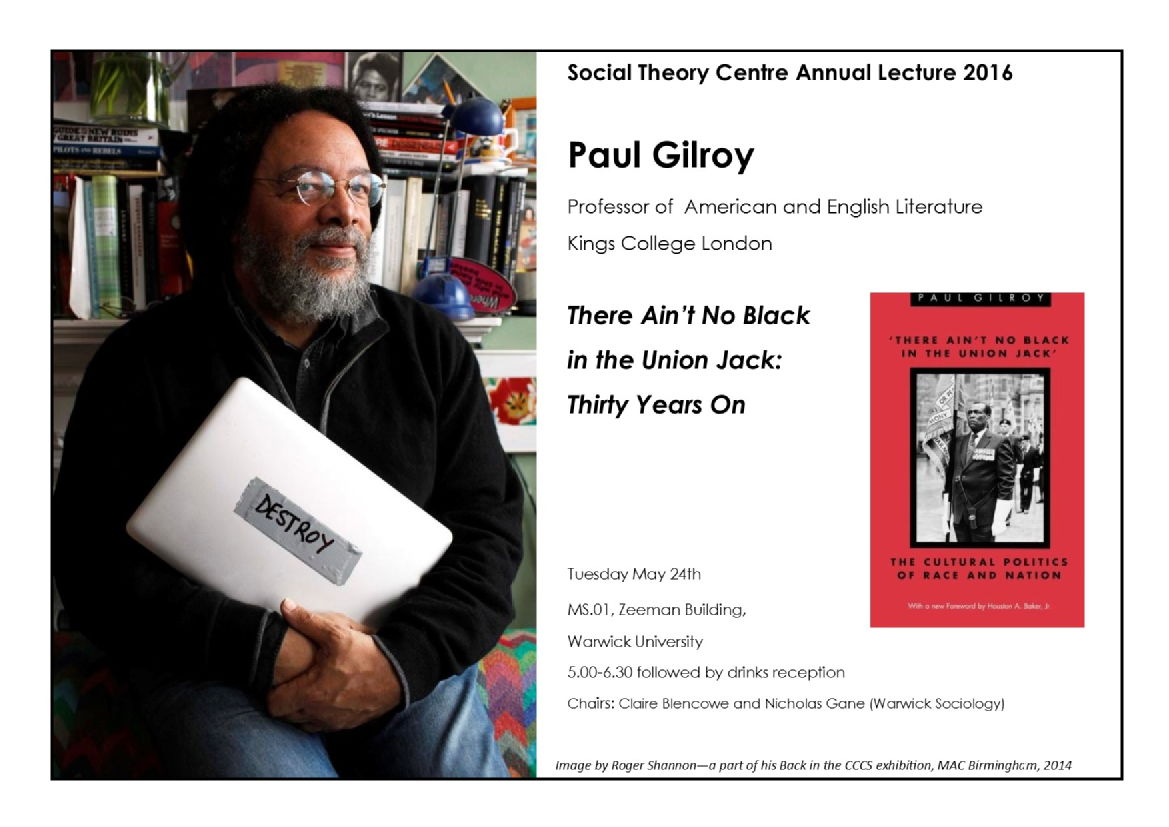In 1987 Paul Gilroy released his controversial critique of British racial politics, There Ain’t No Black in the Union Jack. In it, he explored the role of racism across the political spectrum, left and right, as well as the relationship between racial and national identity. PAUL GILROY is one of the most incisive thinkers of his generation. He is best known for There Ain't No Black in the Union Jack (1987), a controversial exploration of anti-black racism in Britain.
There Ain't No Black In The Union Jack Paul Gilroy Mn



| ||||||
'There Ain't no Black in the Union Jack': The Cultural Politics of Race and Nation University of Chicago Press, 1991 Paper: 978-0-226-29427-8 Library of Congress Classification DA125.N4G55 1991 Dewey Decimal Classification 305.896073 ABOUT THIS BOOK TOC REQUEST ACCESSIBLE FILE ABOUT THIS BOOK Gilroy demonstrates the enormous complexity of racial politics in England today. Exploring the relationships among race, class, and nation as they have evolved over the past twenty years, he highlights racist attitudes that transcend the left-right political divide. He challenges current sociological approaches to racism as well as the ethnocentric bias of British cultural studies. 'Gilroy demonstrates effectively that cultural traditions are not static, but develop, grow and indeed mutate, as they influence and are influenced by the other changing traditions around them.'—David Edgar, Listener Review of Books. 'A fascinating analysis of the discourses that have accompanied black settlement in Britain. . . . An important addition to the stock of critical works on race and culture.'—David Okuefuna, Chicago Tribune See other books on: Black Blacks Cultural Politics Cultural, Ethnic & Regional Nation See other titles from University of Chicago Press | ||||||
Nearby on shelf for History of Great Britain / England / History:
9781611861266 | ||||||
Paul joined UCL as Professor of the Humanities in August 2019 and, as Founding Director of the Sarah Parker Remond Centre for the Study of Racism & Racialisation, is responsible for establishing a vibrant new interdisciplinary research centre that harnesses scholarship from across UCL in the critical study of race as well as the history, theory and politics of racism and its effects. The Centre will be outward facing and aims to become a hub for radical scholarship and engaged thinking, drawing in scholars, activists, policy makers and students from across UCL’s faculties, from London, the UK and internationally. In addition to the Director, the Centre will be staffed initially by an administrator and two lecturers and will attract doctoral students and post-doctoral fellows as well as establishing a new MA programme for students interested in exploring processes of racialization, racialized experience and racism in global, trans-historical and multi/interdisciplinary ways.

There Ain't No Black In The Union Jack Paul Gilroy Md
Paul Gilroy is one of the foremost theorists of race and racism working and teaching in the world today. Author of foundational and highly influential books such as There Ain’t No Black in the Union Jack (1987), The Black Atlantic: Modernity and Double Consciousness (1993), Against Race (2000), Postcolonial Melancholia (2005) and Darker Than Blue (2010) alongside numerous key articles, essays and critical interventions, Gilroy’s is a unique voice that speaks to the centrality and tenacity of racialized thought and representational practices in the modern world. He has transformed thinking across disciplines, from Ethnic Studies, British and American Literature, African American Studies, Black British Studies, Trans-Atlantic History and Critical Race Theory to Post-Colonial theory. He has contributed to and shaped thinking on Afro-Modernity, aesthetic practices, diasporic poetics and practices, sound and image worlds.
There Ain't No Black In The Union Jack Paul Gilroy Mass
Winner of the Holberg Prize (2019), which is given to a person who has made outstanding contributions to research in the arts, humanities, social science, the law or theology, Professor Gilroy was described by the awarding committee as ‘one of the most challenging and inventive figures in contemporary scholarship’. He has transformed the canon of political and cultural history, making us aware of how the African diaspora – spurred into motion, largely, by racial slavery – was an extra-national, socio-political and cultural phenomenon which challenged essentialist conceptions of country, community and identity, and what is more, was constitutive of modernity. Gilroy was one of the founding figures of a remapped global history that embedded the movement of racialized subjects and traded goods into accounts of the world as we know it. His work on racism in modern Britain has consistently countered romantic narratives of whiteness, Christianity and ethnic homogeneity as uniquely constitutive of these islands and has written the long history of Black Britons into the cultural and social fabric of Britishness. Using philosophy, sociology, musicology, literature, history and critical theory, he has breathed new life into the humanist tradition, extending it to include scholarly and political discourses on race and anti-racist polemic.
There Ain't No Black In The Union Jack Paul Gilroy Valley
Photo credit: Lola Paprocka